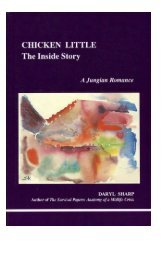Personality types: Jung's model of typology - Inner City Books
Personality types: Jung's model of typology - Inner City Books
Personality types: Jung's model of typology - Inner City Books
- No tags were found...
Create successful ePaper yourself
Turn your PDF publications into a flip-book with our unique Google optimized e-Paper software.
Introduction to Jungian Typology 31omed, brutal, full <strong>of</strong> mutual depreciation, even when conductedquietly and in the greatest intimacy. For the value <strong>of</strong>the one is the negation <strong>of</strong> value for the other. 28In the course <strong>of</strong> life, we are generally obliged to developboth introversion and extraversion to some extent. This is necessarynot only in order to coexist with others, but also for thedevelopment <strong>of</strong> individual character. "We cannot in the longrun," writes Jung," allow one part <strong>of</strong> our personality to becared for symbiotically by another." Yet that is in effect whatis happening when we rely on friends, relatives or lovers tocarry our inferior attitude or function.If the inferior attitude is not consciously allowed some expressionin our lives, we are likely to become bored and boring,uninteresting to both ourselves and others. And sincethere is energy tied up with whatever in ourselves is unconscious,we will not have the zest for life that goes with a wellbalancedpersonality.It is important to realize that a person's activities are notalways a reliable indication <strong>of</strong> the attitude type. The life <strong>of</strong> theparty may indeed be an extravert, but not necessarily. Similarly,long periods <strong>of</strong> solitude do not automatically mean thatone is an introvert. The party-goer may be an introvert livingout his shadow; the solitaire may be an extravert who has simplyrun out <strong>of</strong> steam, or has been forced by circumstances tobe alone. In other words, while a particular activity may beassociated with introversion or extraversion, this does not soeasily translate into the type one is.The crucial factor in determining type, as opposed to simplywhich attitude is currently prominent, is therefore notwhat one does but rather the motivation for doing it—the directionin which one's energy naturally, and usually, flows:28 Ibid.










